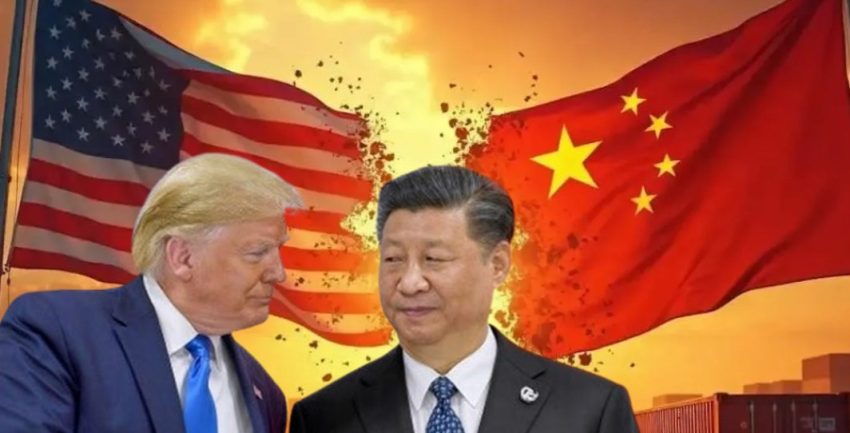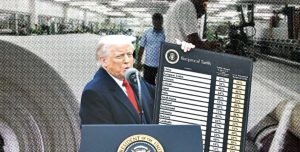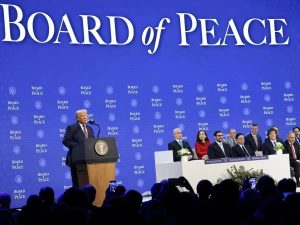WASHINGTON – US President Donald Trump dropped another bombshell under his “America First” message, as he announced hitting every Chinese import with 100% tariff, doubling the costs of goods already burdened by massive duties.
And as if that were not enough, POTUS declared that all critical software exports from America would face strict new controls on the same day.
In stunning escalation of US–China trade war, Trump announced that US will hammer all Chinese imports with new 100% tariff, starting November 1, a move which economist said could shake global markets and push the world’s two largest economies to the brink of a full-blown economic standoff.
The announcement came after Trump threatened “massive increase” in tariffs in retaliation for China’s shocking new export restrictions on rare earth minerals.
Adding fuel to fire, Trump hinted that he might call off his meeting with Chinese President Xi Jinping at the upcoming Asia-Pacific Economic Cooperation (APEC) summit in South Korea, accusing Beijing of taking an “extraordinarily aggressive” stance on trade.
Nearly every Chinese product entering America is already subject to heavy tariffs, with duties reaching as high as 50pc on steel and aluminum and around 7.5pc on many consumer goods.
Recent post by Trump said China issued a “hostile letter to the world,” announcing sweeping export restrictions on virtually all of its goods, a move he called “absolutely unheard of in international trade” and “a moral disgrace in dealing with other nations.”
“Based on this unprecedented act,” Trump wrote, “the United States will impose a 100% tariff on China, over and above what they’re currently paying. Also on November 1, we will impose export controls on any and all critical software.”
China’s Ministry of Commerce confirmed foreign firms will be required to obtain special licenses to export any products containing more than 0.1pc rare earths sourced from China, or made using Chinese extraction, refining, magnet-making, or recycling technologies.
With both nations now trading blow for blow, analysts warn the world may be witnessing the most explosive trade confrontation of the 21st century, one that could upend global supply chains, rattle technology sectors, and redefine the balance of economic power.














